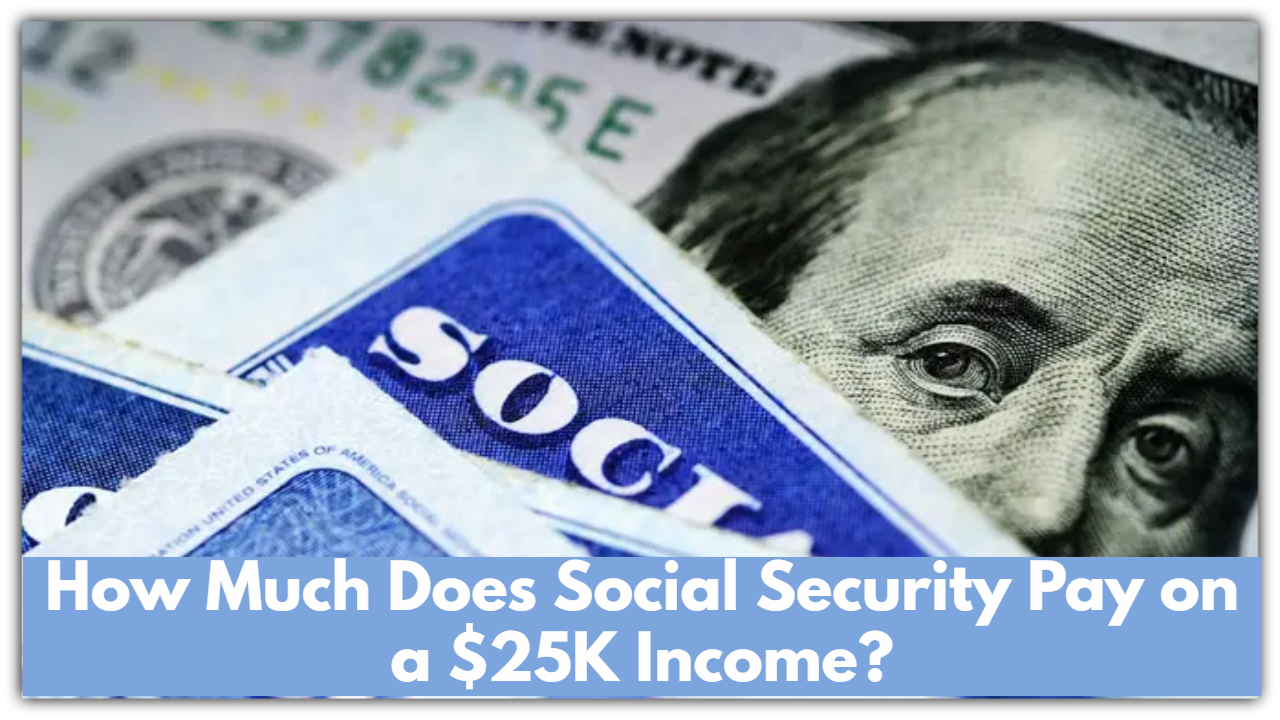How Much Does Social Security Pay on a $25K Income? The Answer Might Surprise You
If you’re earning around $25,000 a year and thinking ahead to retirement, you’ve probably wondered how much you’ll actually get from Social Security. It’s a fair question—and honestly, the answer depends on a few key factors, like when you start taking benefits and how long you’ve been working.
Let’s break it all down in a way that actually makes sense.
So, What Can You Expect Each Month?
If your average yearly income throughout your working life is about $25,000, and you claim Social Security at your full retirement age (which is 67 for most people now), you can expect a monthly benefit of somewhere between $1,200 and $1,300.
Now, this isn’t a flat number—it’s based on how Social Security calculates your benefit using your highest 35 years of earnings. But if your income has been fairly consistent at that level, you’ll probably land in that range.
When You Start Collecting Matters—A Lot
Timing is everything when it comes to Social Security. Here’s how it works:
-
If you start taking benefits at 62 (which is the earliest you can), your monthly check will be smaller. You might get around $840 to $910 per month. That’s because you’re taking it five years before your full retirement age, and the system reduces your benefit accordingly.
-
If you wait until your full retirement age, which for most folks is 67, you’ll get your full benefit—around $1,200 to $1,300 a month.
-
If you hold off until age 70, you’ll actually get more money each month. The government increases your benefit for every year you wait past full retirement age, up to age 70. That could bump your monthly benefit up to somewhere between $1,488 and $1,612.
So if you’re healthy and can afford to wait, it might be worth it. But everyone’s situation is different.

What Happens If You Keep Working?
Let’s say you want to keep working part-time while collecting Social Security. You can absolutely do that, but there are a few rules—especially if you haven’t yet hit your full retirement age.
In 2025, if you’re under full retirement age and you earn more than $23,400, Social Security will reduce your benefits. Specifically, they’ll take away $1 for every $2 you earn over the limit.
So, if you make $25,000, that’s $1,600 over the limit. That means they’d withhold about $800 from your benefits that year. But here’s the good news: once you hit full retirement age, they stop reducing your checks, and they’ll even adjust your future payments to give you credit for the money they withheld.
If you’re working during the year you reach full retirement age, the limit jumps to $62,160, and the reduction is less severe—$1 for every $3 you earn above that. And once you’re past full retirement age, there’s no limit at all. You can earn as much as you want without it affecting your benefits.
Will You Pay Taxes on Your Social Security?
Maybe. It depends on your total income—not just what you get from Social Security.
If you’re single:
-
If your combined income is under $25,000, your benefits probably won’t be taxed.
-
Between $25,000 and $34,000, up to 50% of your benefits could be taxable.
-
Over $34,000, as much as 85% of your benefits might be taxed.
If you’re married and filing jointly:
-
Under $32,000, you probably won’t owe any taxes on your benefits.
-
Between $32,000 and $44,000, you could be taxed on up to 50%.
-
Over $44,000, up to 85% of your benefits might be taxable.
Just to clarify, this doesn’t mean they take away 85% of your check. It just means up to 85% of your Social Security income gets added to your taxable income, which is then taxed at your usual rate. And if Social Security is your only income, you might not owe any taxes at all.
What About Cost-of-Living Adjustments?
Every year, Social Security benefits are adjusted to keep up with inflation. This is called a Cost-of-Living Adjustment, or COLA. For 2025, the COLA is 2.5%. That means your monthly check will go up a little next year to help cover rising costs for things like groceries and gas.
Quick Recap
Here’s a simple look at what you might get each month based on when you start your benefits:
| When You Start | Estimated Monthly Benefit |
|---|---|
| Age 62 | $840 – $910 |
| Age 67 | $1,200 – $1,300 |
| Age 70 | $1,488 – $1,612 |
Remember, these are rough estimates. Your actual benefit could be a little higher or lower based on your work history, earnings, and other personal details.


Comments are closed, but trackbacks and pingbacks are open.